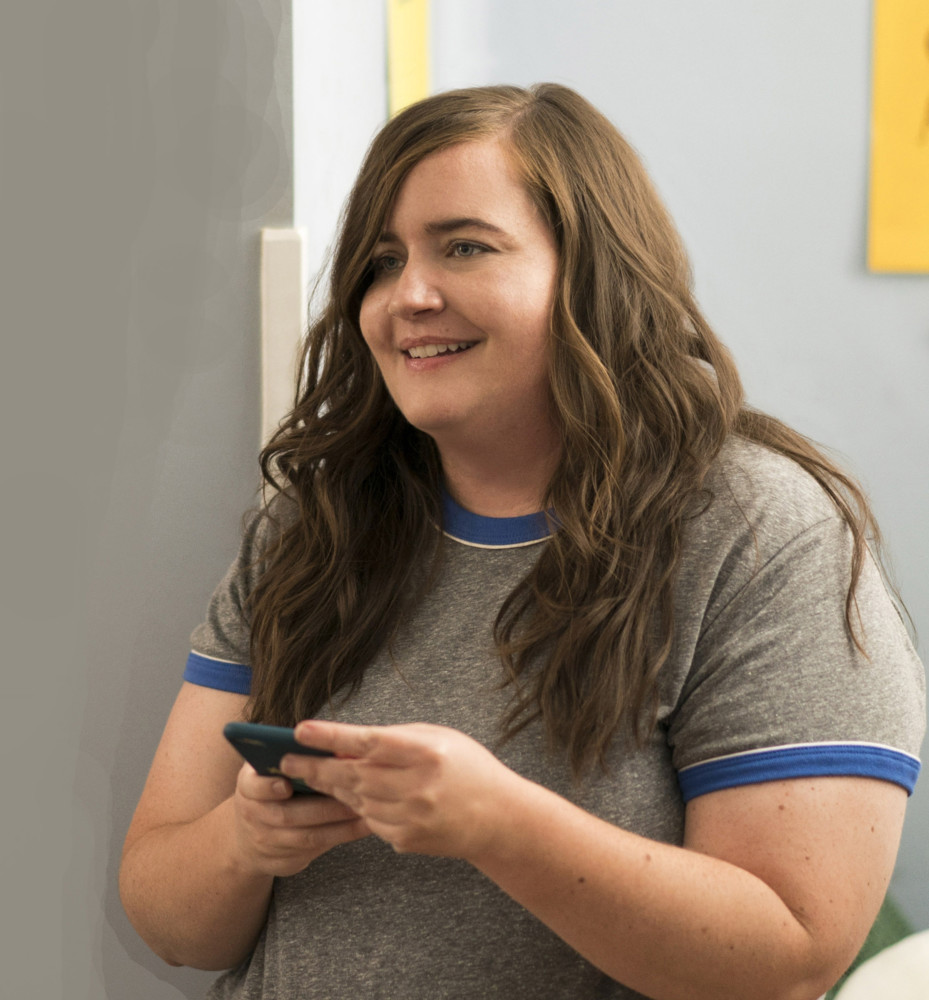By Luaine Lee
Tribune News Service
WWR Article Summary (tl;dr) “Shrill” stars Aidy Bryant (“Saturday Night Live”) as a young woman trying to come to terms with her weight while remaining positive in the face of all the killjoys around her.
PASADENA, Calif.
TV shows like “Mike & Molly,” “Dietland” and “This is Us” have provided a little wiggle room for women who don’t fit into the Hollywood corset.
But although the average American woman sports a robust size 16, TV never saw a double digit that it liked.
Now, all that is changing. The latest to slip into something more comfortable is “Shrill,” premiering on Hulu Friday.
The 30-minute sitcom stars Aidy Bryant (“Saturday Night Live”) as a young woman trying to come to terms with her weight while remaining positive in the face of all the killjoys around her.
The show is based on Lindy West’s memoir, “Shrill: Notes from a Loud Woman.” Its comedic slant attracted producer Lorne Michaels and actress-producer Elizabeth Banks. “Lindy presents this really funny series of horrible characters that were all that she saw as representation for her, as a young woman,” says Banks.
“And we were coming off of (producing) three ‘Pitch Perfect’ movies, where our co-lead, Rebel Wilson, had a love story and then became an action superhero. And we just felt like we could use more of that representation in the world. So I love that about the book,” she says. “I felt like there could be a positive role model in this show for young women.”
For Bryant, it was a match made in heaven. “I didn’t see a lot of fat women on television when I was growing up, and I always craved that,” she says.
“And so, when I read Lindy’s book, there were so many things in there that I identified with, particularly the idea that the whole world is kind of telling you you’re wrong for existing in the way that you are. Even if you don’t feel that way and you feel like, ‘I have something to offer this world, and why do I have to do it in a size 2 package?’
“And I think that part of the book resonated with me so deeply that when I heard Elizabeth optioned it, I was like, ‘What are they making? I’ll do anything to get in there!'”
Bryant, 31, doesn’t think her character of Annie emulates any of those she creates on “Saturday Night Live.” “But I certainly think, in just the nature of a writers’ room, we all put ourselves into this character,” she says.
“And I think some of Annie’s apologetic nature is certainly maybe more my deal than Lindy’s … And some of those things that we put into the show I think are maybe some of my characterization. But I think she’s not exactly me, she’s not exactly Lindy. She’s someone else. And I think that’s healthy.”
Rarely does a TV script seek a character described as a “fat” woman. “I think for a lot of my life, I was extremely afraid of being labeled with that word,” says Bryant. “And then, honestly, through reading Lindy’s book and also just through growing up a little bit, I started to be like, ‘It can be a descriptor and not a pejorative. And I can sort of own it comfortably and not let it destroy me if I hear it.’
“And it’s probably going to be hurled at me forever (now) that I’m on-screen. And that I can either let it cut me to my bone or kind of be like, ‘Yeah. Guess what? I am f __ fat, and you have to deal with it.'”
The word fat itself carries no gravitas, insists West. “I mean it has power ’cause we give it power. And, really, it’s no different than ‘tall’ or ‘blonde’ or whatever. And I just think reclaiming terms that have been used to hurt us is really powerful.”
Banks, who’s appeared in shows like “Modern Family” and four of “The Hunger Games” films, may be the requisite slender blonde, but she too has encountered Hollywood’s arcane rules of engagement.
“I hope it doesn’t surprise anyone that I’m not always super-comfortable in my own skin either. And, you know, I remember when I first came to Hollywood. I went to my very first meeting in Hollywood. It was with an agent who told me that I should get a boob job. And I left the meeting. I did not get a boob job.”
In these days of fighting bigotry, one thing’s for sure: It ain’t over till the fat lady sings.














































































































































































































































































































































































